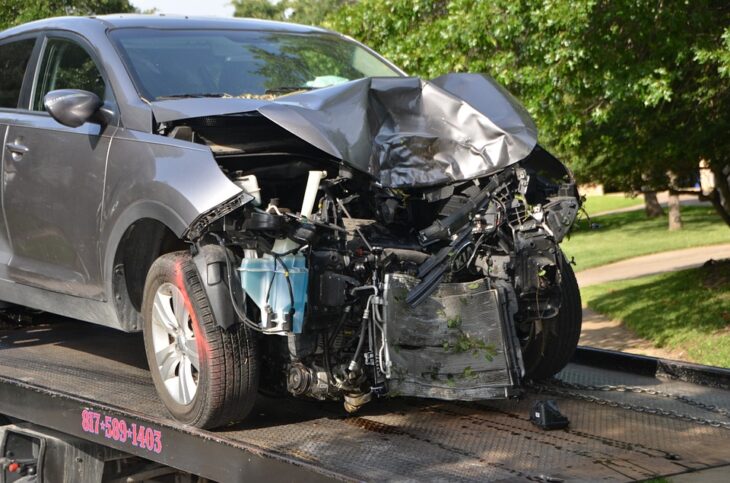In 1970, 60,000 people were killed in traffic accidents across the United States. Because of a strong focus on safety, however, the Atlantic reports that cumbersome number was cut to just 32,719 people in 2013, which is a historic low. Self-driving cars could drop those numbers even more. In fact, a new report recently analyzed the impact the driverless cars could have on fatal traffic accidents, and because these robotic cars take out human emotions and and human error, the annual death toll could be reduced by up to 90 percent. That equates to 300,000 lives saved every decade and more than $190 billion every year in healthcare costs.
Driverless Car Accidents
Over a period of six months in California, 48 driverless cars were in accidents. One in 12 cars sound like a lot of accidents, but when investigating deeper, research found the technology was not to blame. Humans were the drivers who caused these accidents. With three of the Google driverless cars during that period, human error took the blame 100 percent of the time. Chris Urmson, the director of the self-driving car project at Google, said that not once was the driverless car responsible. In the fourth accident with a driverless car, it took place because the car was not set to self-driving mode.
Drivers Not Happy About Self Driving Cars?
Peter Dockril from the University of Michigan reported the results of a survey back in June. They tested 505 drivers, and they found the majority of them were not excited about automated vehicles. In fact, 43.8 percent filled in the blank that they’d prefer to retain full control over their vehicle, thank you very much. Meanwhile, 40.6 percent said they were open to the concept of a partially self-driven car. Only 15.6 percent of respondents said they trusted the technology of a self-driving car. Like Andre Moore said, no one trusts the self-driving car until it has proven it will be 100 percent safer than humans driving on the road. People have been trained over the years of how it’s better to be the driver than the passenger.
Big Changes on the Horizon
The concept has already caught on with the US government, and they have invested $4 billion to help fund driverless cars on the road. For this to work major changes to driving infrastructure and car research will have to be made. One example is with cheap car insurance. In the past, drivers had to pay for car insurance. According to iii.org, in the future manufacturers and suppliers will be the main ones responsible for when the technology malfunctions, so they will be the ones who have to carry insurance.
Misjudging distance has been a major problem for these vehicles. In one accident in California involving a city bus, if the self-driving car had been able to judge distance between sandbags on the road and the bus, it could have avoided being hit. Luckily, the damage to both vehicles were minimal, and there were no reported injuries. Unfortunately, the depth-perception calculations of the fully automated vehicle have not reached 100 percent. The distance it calculates has to be instant, and the programming still lags behind, which is why researchers continue to test these cars at slower speeds.
How Often Does the Software Malfunction?
Malfunctioning software could become a key threat to eliminating car accidents with this technology. The vehicle continues to need tweaking. One of the common issues that arises is when the car fails to rethink its location on the roadway. The car should see far enough ahead to make the necessary adjustments. As it continues to move at faster speeds, the hazards will increase, and it could lead to more serious accidents.
The self driving car can even be summoned via smartphone. Google does not normally come to mind when thinking of key players in the car market, but this technology company has spearheaded the charge into this thrilling new industry.


